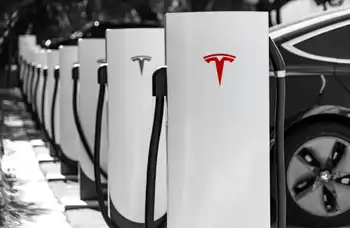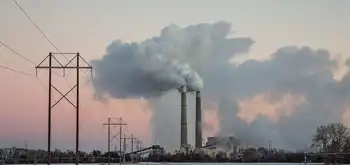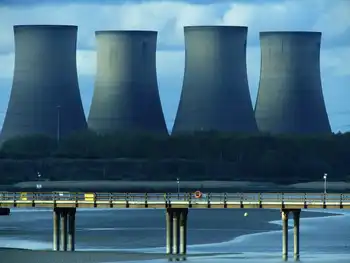Europe pays to ship U.S. coal as price sinks
By International Herald Tribune
NFPA 70e Training - Arc Flash
Our customized live online or in‑person group training can be delivered to your staff at your location.

- Live Online
- 6 hours Instructor-led
- Group Training Available
A ton of U.S. coal is so inexpensive, at about $47, that European utilities will pay $50 to ship it across the Atlantic, according to Galbraith's, a 263-year-old London shipbroker.
Peabody Energy, Consol Energy and Arch Coal, the three biggest U.S. coal companies, forecast the largest increase in exports in 20 years, despite the call for a moratorium on coal plants by Gore, the former U.S. vice president and 2007 Nobel Peace Prize winner.
Coal use worldwide has grown 27 percent since 2002, three times as fast as the use of crude, according to BP.
"Coal is by far the cheapest fuel because there's no price on how much damage it causes," said John Holdren, a Harvard University professor of environmental science and director of the Woods Hole Research Center in Falmouth, Massachusetts. "Unless you get policies to put a price on carbon dioxide and other emissions, no other plants can compete."
Coal generates 41 percent of the world's man-made carbon dioxide emissions, which are largely blamed for global warming.
Yet there is a definite price advantage: U.S. coal prices are equal to $1.98 for each million British thermal units of energy, compared with $12.51 for fuel oil and $6.91 for natural gas, data compiled by Bloomberg show. A million British thermal units is the equivalent of eight gallons, or 30 liters, of gasoline.
"There is a huge advantage with coal, and this will continue indefinitely," said Gianfilippo Mancini, the head of fuel purchasing for Enel, the largest Italian power company, which is spending 4 billion euros, or $5.8 billion, to convert oil-fed plants to run on coal.
Gore has called for the United States to adopt a "complete moratorium" on new coal-fed power plants unless all of the carbon dioxide from them can be buried underground. U.S. government efforts to subsidize coal as an alternative to oil would be a "serious mistake," he said in an interview June 1 on Bloomberg Television.
Still, U.S. coal exports to Europe for the first nine months of this year were 11.4 million tons, up 15 percent from the same period in 2006, according to the U.S. Energy Department.
The increased demand for coal lifted Peabody, Arch and Consol shares 36 percent from Aug. 3 to Nov. 2 in New York trading, according to Bloomberg's U.S. coal index. Among Wall Street analysts, 76 percent recommend buying shares of Peabody and 62 percent recommend Consol, according to data compiled by Bloomberg.
"Consol is in a great position to take a big share of the new demand from Europe," said Bill Wolf, an analyst at John T. Boyd & Co. in Pittsburgh, which advises coal buyers and mining companies. Consol operates a port in Baltimore that could handle more than twice the 6.3 million tons it shipped last year.
Consol, based in Pittsburgh, will open its largest metallurgical coal mine by Jan. 1, with as much as five million tons of annual production available to overseas buyers.
More than 1,000 coal-fed power plants will be built in the next five years, mostly in China and India, according to the U.S. Department of Energy. China, the world's biggest coal producer, became a net importer for the first time this year, taking supplies from Indonesia, Australia and South Africa and reducing the amount available for Europe.
"What we're seeing right now is just great," said Sipho Nkosi, chief executive of Exxaro Resources, a South African coal and zinc producer. "Whether you're talking America, Europe, Africa, Australia, Asia, all economies are doing well. The growth is there."
Proposed U.S. coal plants may not be completed because of regulatory and environmental opposition. Kansas regulators last month rejected a permit for a coal-fueled plant because its carbon emissions were deemed a health hazard.
New cleaner-burning technologies for coal, including one that converts the fuel to a synthetic gas, have been delayed or rejected as too costly. Financing new coal plants may also become more difficult as environmental groups step up efforts against lenders including Citigroup and Bank of America.
Despite that, coal producers in the United States say sales in emerging markets are rising.
"I didn't know how to get coal to Romania a month ago but I do now," said Michael McQuillen, chief executive of Alpha Natural Resources, the coal miner in Virginia formed by First Reserve, the largest private equity firm focused on energy assets. Russia, Ukraine and Romania are all looking to buy from the United States, he said.











